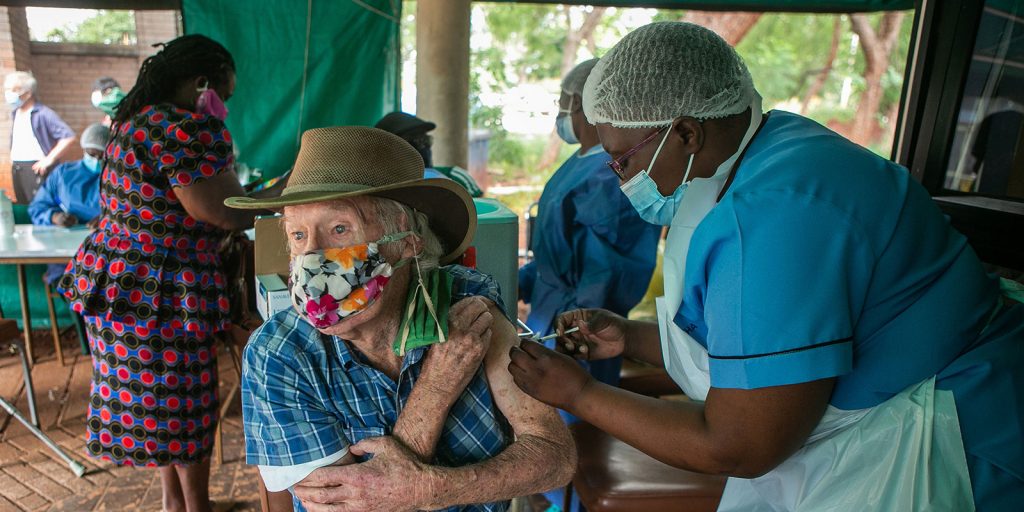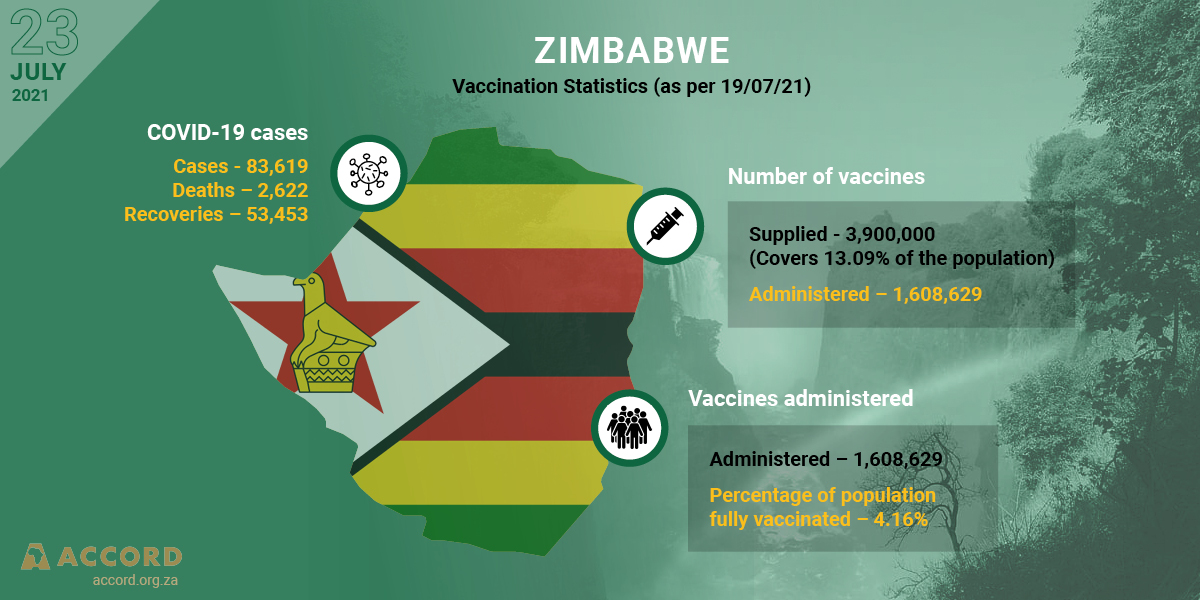Even before many of the now-approved COVID-19 vaccinations had completed their clinical trials, countries such as Britain, the United States (US), Japan and those within the European bloc had procured several million doses of vaccines. With several vaccine options available, public confidence in the safety and efficacy of the COVID-19 vaccine has however become heavily dependent on the political context in which the different approved vaccines are distributed. Recently, with the increase in the vaccinated population, the European Union (EU) has begun welcoming vaccinated tourists from within the bloc and from the US but not from other countries with vaccination certificates for vaccines which are not among those that have received EU marketing authorisation. The bloc is also planning to introduce vaccine passports which do not recognize vaccines manufactured outside the bloc, implying that ‘some vaccines are more equal than others’ and basically locking out the global south.
With several vaccine options available, public confidence in the safety and efficacy of the #COVID-19 vaccine has however become heavily dependent on the political context in which the different approved vaccines are distributed.
Tweet
The COVID-19 vaccine has become the symbolic totem of a new form of political power. In Africa, European actors through the COVAX facility have politicized the vaccine as they try to show their benevolence towards Africa while reaping soft power diplomatic benefits in return. This competition, between old and new powers will have implications on how public health and development are seen and responded to across Africa as each of the approved vaccines is either dangerous, ineffective or highly efficacious, depending on which politician or media commentary one listens to.
COVAX is co-led by CEPI, Gavi and WHO, alongside the key delivery partner UNICEF. COVAX is one of three pillars of the Access to COVID-19 Tools (ACT) Accelerator, which was launched in April 2020 in response to the pandemic. Bringing together governments, global health organisations, manufacturers, scientists, private sector, civil society and philanthropy, with the aim of providing innovative and equitable access to COVID-19 diagnostics, treatments and vaccines. COVAX coordinates international resources to enable low-to-middle-income countries equitable access to COVID-19 tests, therapies, and vaccines. As of June 2021, the WHO has approved Oxford–AstraZeneca, Pfizer–BioNTech, Moderna, Sinopharm, Sinovac and Janssen vaccines for emergency use. These vaccines can be distributed as part of COVAX. In South Africa, WHO and its COVAX partners are working with a consortium comprising Biovac, Afrigen Biologics and Vaccines, a network of universities and the Africa CDC to establish South Africa’s first COVID mRNA vaccine technology transfer hub. This move is to establish COVID mRNA vaccine technology transfer hubs to scale up production and access to COVID-19 vaccines.
In Zimbabwe, for example, the Sinopharm and Sinovac vaccines from China, Sputnik V from Russia and Covaxin from India are the only vaccines currently being administered, with Sinopharm and Sinovac vaccines being the most administered. The first batch of Sinopharm and Sinovac vaccines arrived through a coup of diplomacy on a specially chartered Air Zimbabwe flight, and was met by the Chinese ambassador and the Vice President cum Health Minister of Zimbabwe. It was a symbolic moment that was widely captured in the press. Amid shortages of the donated vaccines from China, the government of Zimbabwe turned down a donation of three million doses of the Johnson and Johnson COVID-19 vaccine while hundreds of Zimbabweans protested about a shortage of COVID-19 vaccines as the country awaits more doses from China. Government critics have however pointed to politics as the reason behind the government’s decision. In correspondence sent to the African Export-Import Bank which is managing funding for the African Vaccine Acquisition Trust (AVAT) program for the African Union and has secured doses from a number of suppliers, Zimbabwe’s government explained it was still analysing possible side effects of the Johnson and Johnson’s COVID-19 vaccine and that the country is not yet ready to participate in the August allocation of the vaccines as measures are still being put in place to establish the cold chain management framework for the vaccines.

With information contrary to this, the Zimbabwe Association for Doctors for Human Rights reported that Johnson and Johnson vaccines are stored at the same temperatures as China’s Sinopharm and Sinovac vaccines, which Zimbabwe has been using since February 2021.The cold chain mechanisms to store vaccines at 2 to 8 degrees (Celsius) at which Johnson and Johnson is supposed to be stored, are already in place and in addition, the Johnson and Johnson vaccine is administered as a once-off dose therefore the cost of rolling out that vaccine is far less than that of the Sinopharm and Sinovac vaccines which are administered as two doses. Harare-based independent political and economic commentator Rejoice Ngwenya expressed that it is a tragedy that poor relations between Zimbabwe and Britain are the real reason that the Zimbabwean government is rejecting the Johnson and Johnson vaccine and that the Harare-London diplomatic tiff has been allowed to interfere in a situation where citizens of the country are under threat. He urged that the government desist from politicizing vaccination to ensure that the safety and security of citizens of Zimbabwe is safeguarded.
With the Sinopharm and Sinovac vaccinations underway, many Zimbabweans have expressed suspicion and mistrust of the vaccines. There have been claims of some prominent religious leaders discouraging vaccination and seeing it as an opportunity to sell their anointing oil to congregants while reassuring their followers that they will be spared from the virus through prayer and divine protection. Most modern day churches rely on selling anointing oil to their followers to earn money. Suspicion of China’s motives has also been presented, with some citizens claiming that China has economic and political interests in Zimbabwe to expand and exploit resources in Zimbabwe. Others have claimed that China is well known for sending substandard goods to Africa therefore they do not rule out that the vaccines could be substandard. Another common and repeated argument is that COVID-19 is not present in the rural areas therefore people residing in the rural areas do not need to get vaccinated but instead take indigenous herbs and treatments that have proven to be sufficient. More conspiracy theories have been circulated on social media with people being convinced that COVID-19 is an illness of the urban rich and powerful and therefore that this section of the population should receive the vaccines. In contrast, others have argued that Zimbabwe has had a long relationship with China as it assisted during the Rhodesian Bush War during colonialism therefore more confidence can be put in China than the Western countries.
While many governments have been undertaking campaigns to persuade people to get vaccinated against COVID-19, Zimbabwe’s President warned those who choose not to get vaccinated that there shall come a time when unvaccinated citizens will be unable to get jobs and even be forbidden to board local buses. A researcher at International Media Support, a group focused on debunking false information in the media, commented that the President’s message would invoke fears that the Zimbabwean government has weaponised COVID-19 instead of seeing it as a public health issue. The message coming across as vaccination is compulsory for all citizens, suits the trends of dictatorship which the country is well known for. Vaccination is important but one’s decision to receive the doses must be a result of public awareness and confidence building, not a result of threats. Amongst the country’s citizens, there are groups who may not opt for vaccination due to cultural or religious reasons and their rights must be respected.
Rumbidzaishe Matambo is a Programme Officer in the Peace Support Operations Cluster at ACCORD.


